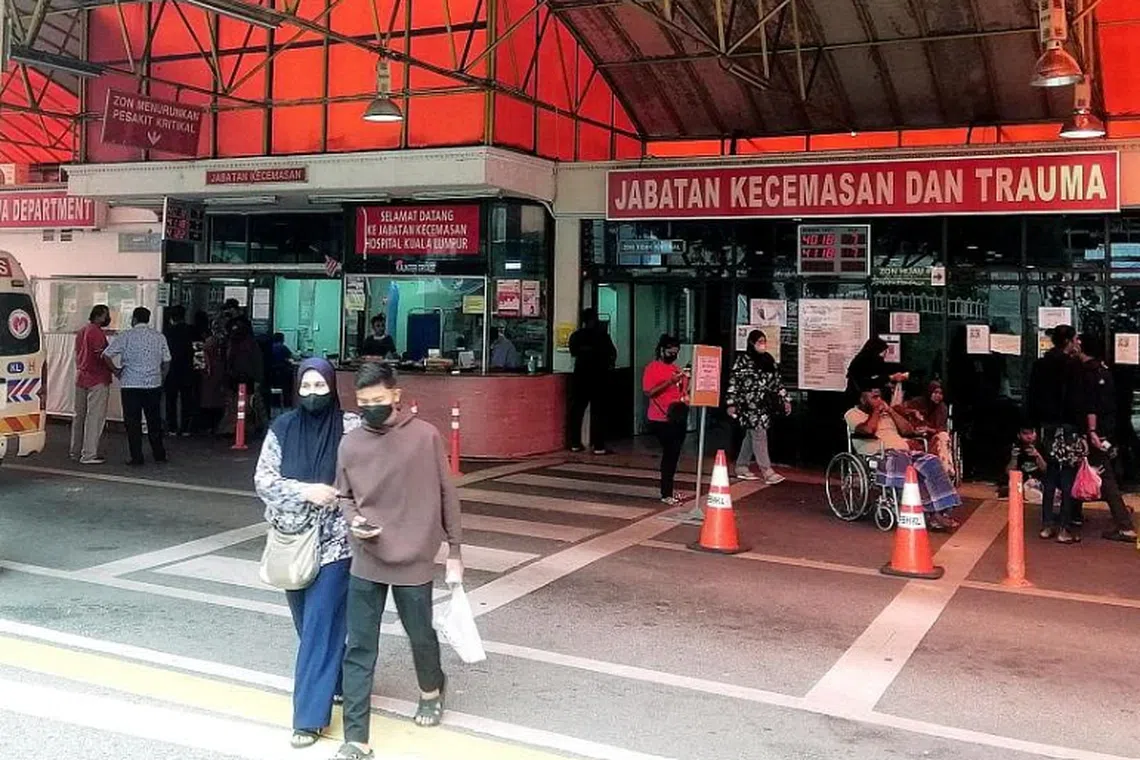Agitated patient at overcrowded hospital in Malaysia stabs another patient
Sign up now: Get insights on the biggest stories in Malaysia

A file picture of a hospital in Malaysia.
PHOTO: THE STAR/ASIA NEWS NETWORK
KUALA LUMPUR - A middle-aged patient in Selangor was seriously injured after being stabbed by an agitated psychiatry patient as they waited in an overcrowded hospital on Tuesday.
The Straits Times understands that the victim, who is a dengue patient, was stabbed three times by the other patient, who was upset over being stranded in the emergency department of Selayang Hospital while waiting for a bed in the wards.
All the wards in the hospital were full at the time of the incident, with dozens waiting for their turns at the emergency department – a reflection that the country’s public healthcare continues to grapple with patient overload and inadequate staff.
The psychiatry patient took a knife from the staff nurse pantry and stabbed the victim once in the back and twice in the abdomen.
The knife ended up being wedged in the victim’s abdomen, who needs to undergo an operation. The hospital and police have not yet commented on the incident.
Tuesday’s incident adds to a growing list of reports of deaths, patient agitation and closure of emergency departments as the country’s hospitals – especially in urban areas – deal with what the health minister called a “tsunami” of non-communicable diseases.
In January, a heart patient died after waiting for over 30 hours for a bed at the Serdang Hospital.
The same hospital was in the news again earlier in February when a group of patients was filmed confronting staff at the cardiology department after waiting 11 hours for an appointment.
A hospital in Klang also had to close the non-critical zone of its emergency department temporarily earlier in February due to patient overload.
All three hospitals involved in recent incidents, including Tuesday’s, are located in Selangor, which neighbours Kuala Lumpur and is the country’s most populous state.
Selayang Hospital in the densely populated Gombak district.
Malaysia’s public healthcare system is set for a thorough review, as four different administrations in the past four years have not been able to solve long-standing systemic problems.
The country has a highly subsidised public healthcare system, which most of the population is reliant on.
However, its healthcare spending and bed ratio still lag behind more developed countries and World Health Organisation recommendations.
This has led to overcrowded hospitals and also poor employment terms for junior doctors, who eventually quit public service, exacerbating the staffing shortage at many hospitals that serve huge populations.



